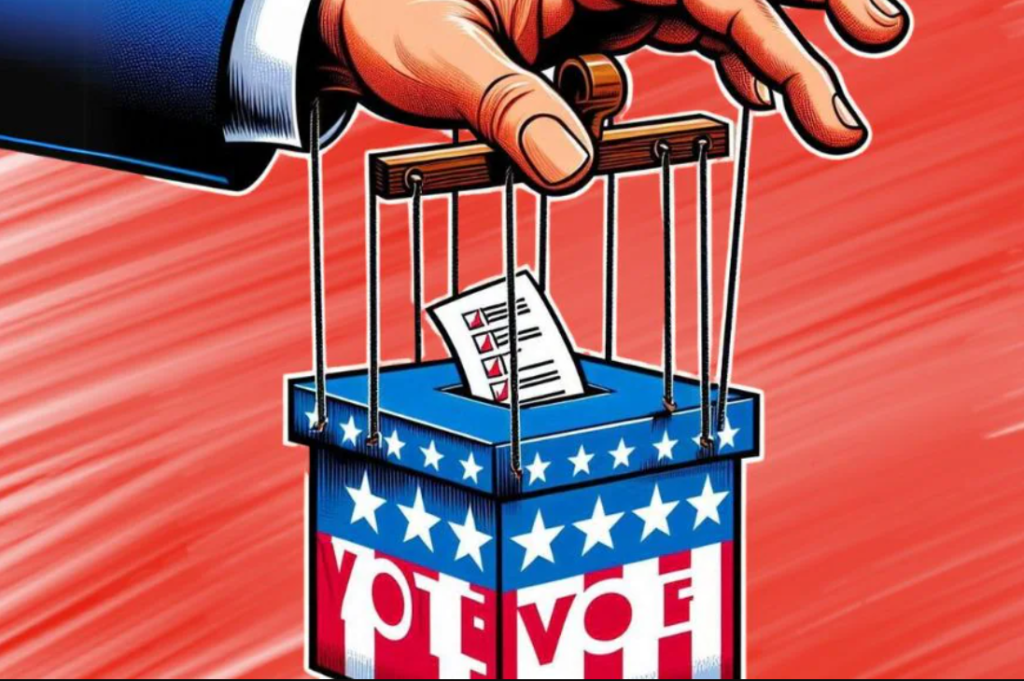Earlier this month, the US government raised concerns about Russia’s alleged attempts to influence the upcoming presidential election. According to US officials, Russia is spreading false information through fake accounts as part of a broader strategy to weaken American democracy. The FBI is also investigating Iran’s involvement in targeting Donald Trump and Kamala Harris’s campaigns. However, Russia remains the primary focus, with accusations of favoring Trump as their candidate. As a result, the US government has seized 32 internet domains connected to these activities and sanctioned several individuals and entities believed to be linked to these operations.

Russia Accused Since 2016
For the third consecutive presidential election, American officials have accused Russia, specifically President Vladimir Putin, of trying to influence election results. The issue first gained attention during the 2016 election, where 12 Russian military officers were indicted for hacking Democratic Party emails and leaking information to help Trump. These officers remain on the FBI’s “most wanted” list, further intensifying the tensions between the US and Russia regarding cyber-espionage and election interference.
Moscow consistently denies these claims, with Putin personally refuting the accusations in various interviews. Even Trump supported Putin, stating, “He [Putin] said he didn’t meddle, and I really believe him.”
Western Hypocrisy
Russia has accused the US and other Western nations of hypocrisy. The US, in particular, has a long history of meddling in elections and supporting regime changes to advance its own interests. Many declassified CIA documents show US involvement in major international events like the 1953 overthrow of Iran’s government and the 1973 coup in Chile. Research has found that between 1945 and 2000, both the US and the Soviet Union interfered in over 100 elections, with the US involved in two-thirds of them.
More recently, the US has been accused of meddling in the political situations of countries like Venezuela and Ukraine. Leaders such as Sheikh Hasina from Bangladesh have openly claimed that the US had a hand in undermining their rule. These allegations reflect the broader critique of Western powers using their influence to destabilize foreign governments.
Propaganda and Fake News
The accusations of election interference are part of a larger battle of narratives between the West and Russia. Both sides have accused the other of spreading disinformation to manipulate public opinion. Russian media, often dismissed by the West due to tight state control, counters that Western media promotes its own interests through biased reporting. A clear example occurred after Russia’s invasion of Ukraine, where fake news circulated about Putin’s health. Despite being proven false, Western media outlets offered no apologies for spreading this misinformation.
In fact, Western media has a long-standing role in shaping global narratives. During the Cold War, it was used to spread anti-communist sentiments and promote liberal democratic values. This flow of information from West to East continues, as regional media struggles to challenge Western dominance.
Challenges in the Information War
In the ongoing information war, Russia appears to be at a disadvantage. Historically, Western media has dominated the global narrative, often marginalizing non-Western perspectives. A striking example was the 2003 Iraq invasion, where claims about Saddam Hussein’s Weapons of Mass Destruction spread without sufficient evidence. Despite the lack of proof, the Western media heavily pushed this narrative, leaving regional outlets like Al Jazeera struggling to provide a counterpoint.
In recent years, public trust in mainstream Western media has eroded, especially among younger audiences. Many people now rely on social platforms for news, rather than traditional outlets. This shift reflects a growing skepticism toward the established media, which many see as biased or untrustworthy.
LifeBahn’s Point of View
At LifeBahn, we believe in the importance of honest, transparent communication, free from the influence of political or corporate interests. The ongoing clash between major global powers, such as the US and Russia, highlights how information can be used as a tool for power. But for families and individuals, what truly matters is the ability to trust the information they receive. Misinformation—whether from Russia, the US, or other powers—undermines the trust that is essential for healthy democracies and societies.
It’s our mission to encourage collaboration over competition. Media, both in the West and East, must work toward building this trust. For us, at LifeBahn, the goal is simple: foster an environment where families can thrive through truth and cooperation, not misinformation and division.
Try LifeBahn’s ‘a lifetime of education in 52 weeks “ or
GREAT@ (Globally Relevant Education And Training} Academy, an education continuum, helping to make a better life for our families and our future generations.
Or share your thoughts and ideas in the LifeBahn blog.
Our path to Prosperity.
Autobahn — Road for Automobiles.
LifeBahn —- Road for life. Built on the simple principle.
While competition is a good way to succeed for a FEW,
collaboration is a BETTER way to succeed for MANY.
Please participate and become part of the solution.
Thank you






